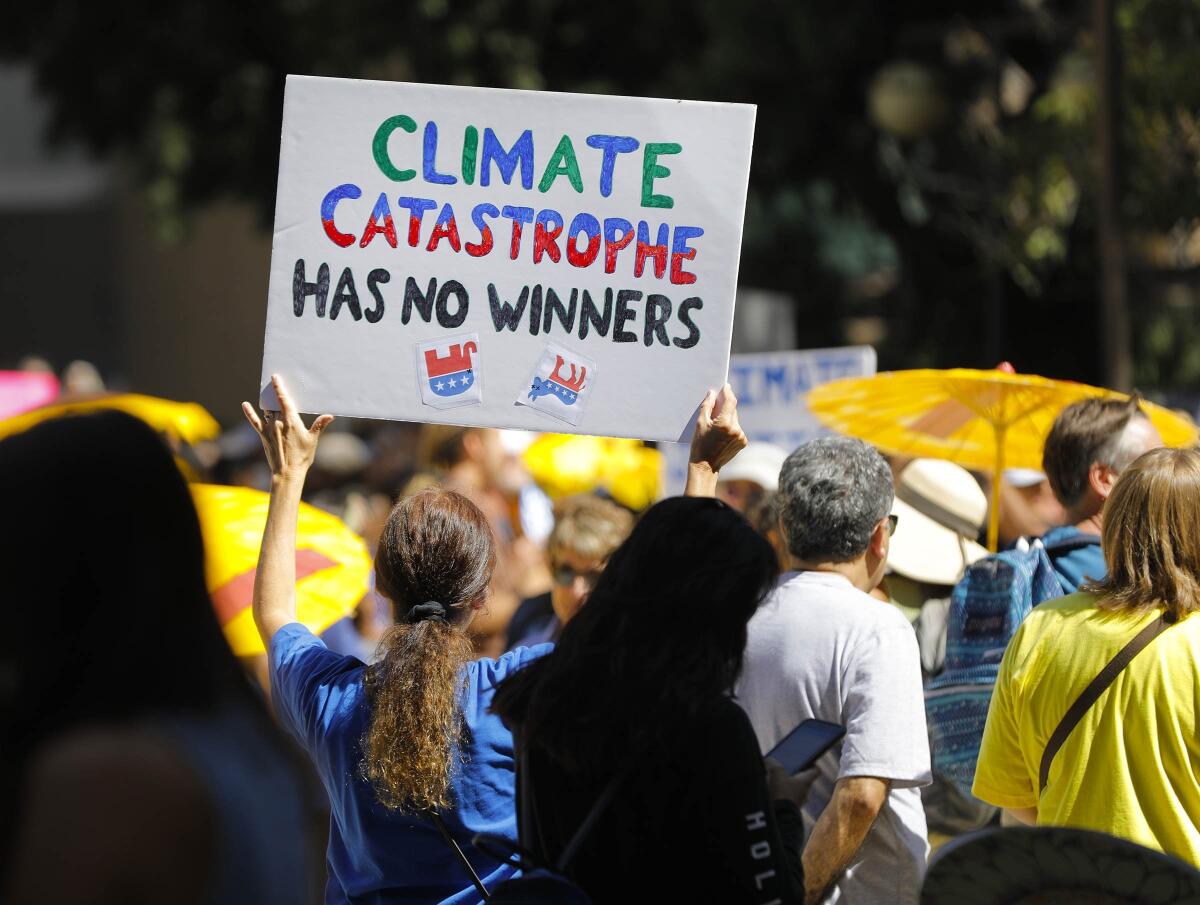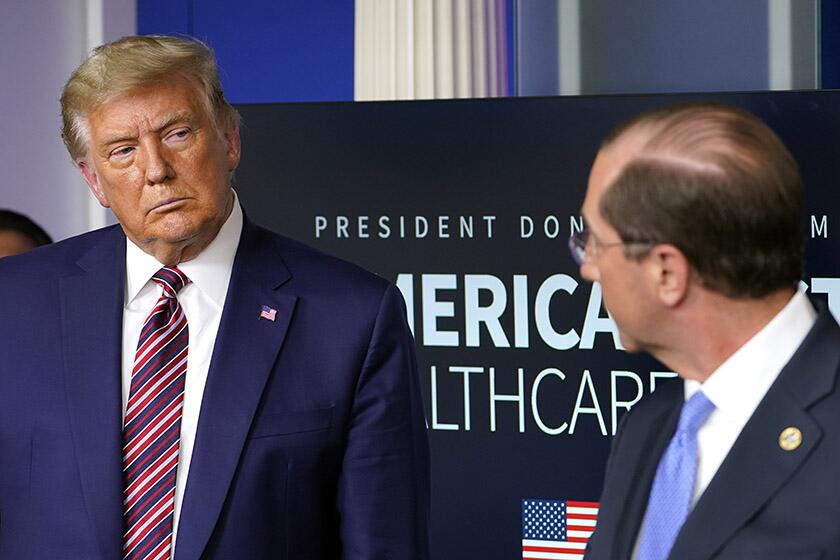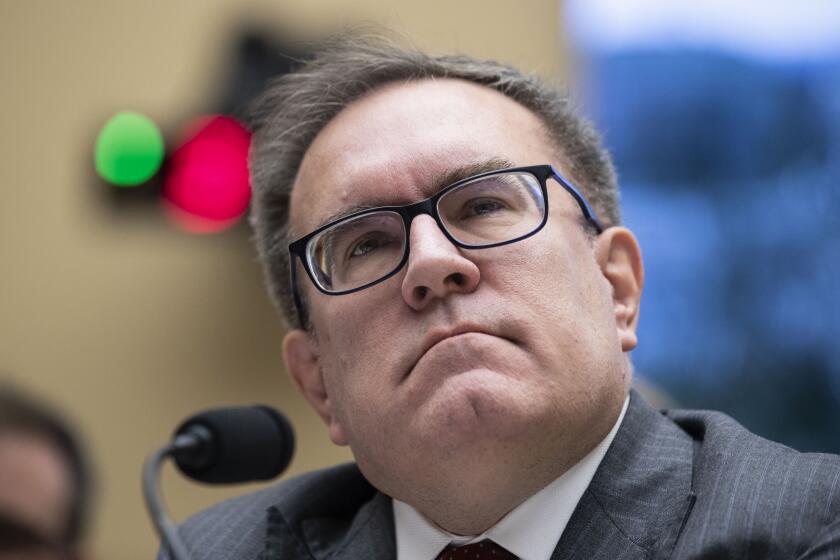Editorial: Biden’s challenge: Restoring the U.S. as a leader against global warming

The election of Joe Biden as president signals a return to sanity in the federal government’s approach to climate change. For starters, Biden at least recognizes the severity of global warming’s impact on the people who are feeding it — us — and has vowed to confront it head on with ambitious programs aimed at shifting the nation to renewable energy sources and decreasing carbon emissions.
And he’s off to a good start by appointing John F. Kerry as a special climate diplomat; as President Obama’s secretary of State, Kerry was instrumental in creating the 2015 Paris agreement. We are heartened, too, by Biden’s statement Tuesday that Kerry’s appointment “will be matched with a high-level White House climate policy coordinator and policymaking structure — to be announced in December — that will lead efforts here in the U.S. to combat the climate crisis and mobilize action to meet this existential threat.”
But any measure of success will require more than a change in administrations. We need a change in the public will as well, because limiting the worst consequences of global warming will be expensive and require sacrifices as we fundamentally alter how we produce and consume energy.
Biden will start that transition as soon as he takes the oath of office by focusing climate and energy polices on human impacts rather than on shoring up the fossil fuel industries. He also intends to integrate efforts to fight climate change across all federal agencies, not just those with jurisdiction over environmental issues. The newly created post in the White House will be tasked with coordinating it all, a practical move that emphasizes the issue’s importance.
The Trump administration’s energy policy was simple and direct: Drill more, sell more, burn more while rolling back regulations through decisions that marginalized the effects of extracting and burning fossil fuels on public health. In fact, the administration is speeding up the issuance of oil leases in the Arctic National Wildlife Refuge in hopes of selling them off before President Trump leaves office, despite clear evidence that the nation needs to reduce such production and instead invest in renewable energy. Fortunately, drilling in the refuge will face significant legal and market headwinds that may negate such maneuvers.
The Trump administration’s two new rules for prescription drugs could save money for taxpayers and many consumers, but it doesn’t have the courage of its convictions.
The first thing Biden needs to do is fulfill his promise to rejoin the 2015 Paris climate accord, which Trump jettisoned as “unfair” to the U.S. It was a spurious excuse to make it easier for the nation’s — and the world’s — oil and gas industries to continue to profit by extracting and selling fossil fuels. Notably, many of the corporations involved in the industry recognize the science — some, such as Exxon Mobil, knew decades ago but sought to squelch the information and spin knowingly false public narratives to sow public doubt about the findings of climate researchers.
Industry leaders also have begun to respond to the growing public demand, including by some major institutional investors, to end our reliance on fossil fuels as quickly as possible. BP, one of the world’s largest oil and gas companies, and Royal Dutch Shell are both trying to move away from their histories and reposition themselves as renewable energy businesses, perhaps the most ambitious efforts in a broader refocus by industry leaders. But it’s not an easy transition to make when revenues from oil production decline as the need for cash investment in renewable energy increases.
The big question, of course, is how much more quickly can the industry, and consumers, act? In the U.S. alone we rely to a disturbing extent on internal combustion engines to power motor vehicles and natural gas or oil to heat our homes, cook our food and power our factories.
It will be expensive to undo that, with motor vehicles sold today lasting a dozen years and with millions of American homes built for gas furnaces rather than electric heat. Also, we still rely too much on natural gas and — decreasingly — coal to generate the electricity that, if we are to shift to more sustainable appliances, we will only need more of.
There’s one area where Biden could unravel a lot of Trump administration damage fairly quickly and easily: Biden can bring respect for science back to Washington.
We noted recently the importance of Biden reestablishing science as a driving force in forming federal policies. But he also will need to resurrect the Environmental Protection Agency as a regulator rather than an agent in undoing necessary protections, broadly restoring the government’s role in protecting public health from the dangerous excesses of polluters.
There is a long list of other necessary steps for the new president to take to protect the environment and confront climate change — reinstating regulations protecting public lands where warranted from drilling, logging and mining, restoring methane emissions rules for wells on federal lands, ramping up fuel efficiency standards for motor vehicles and reviving the Obama-era Clean Power Plan to reduce carbon emissions from power plants, to name a few.
But the most significant role Biden can play as president is to try to resurrect the U.S. as a serious world leader in combating climate change, and to propel us down an irreversible path toward a safer and more sustainable future.
That will require some cheerleading and cajoling but also serious science-framed vision and a significant level of political will. The vast majority of Americans already recognize the reality the world faces. Leading the way forward will be Biden’s most important challenge, and it could be his most significant legacy.
More to Read
A cure for the common opinion
Get thought-provoking perspectives with our weekly newsletter.
You may occasionally receive promotional content from the Los Angeles Times.












